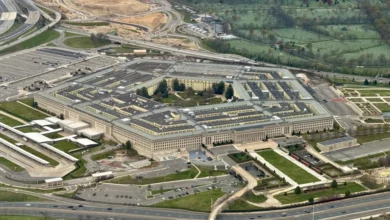WASHINGTON – The United States may lose its chance to reshape the politics of the Middle East if budget pressures hobble US support for democratic forces emerging in countries such as Egypt and Tunisia, US Secretary of State Hillary Clinton said on Tuesday.
Clinton and Defense Secretary Leon Panetta, appearing in a townhall-style meeting, argued strongly against further cuts to military, diplomatic and development spending as the United States struggles to slash its US$1.4 trillion deficit.
"We have an opportunity right now in the Middle East and North Africa that I'm not sure we're going to be able to meet because we don't have the resources to invest," Clinton said, citing Egypt, Tunisia and Libya as badly in need of US help.
"Budget documents are value statements: who we are as a people, what we stand for, what investments we're making in the future," Clinton said.
"Whether we will continue to be strong and be able to project American power is up for grabs, and we're going to make the best case we can that American power is a power for the good… We hope that it will find a ready audience in the Congress as these negotiations resume."
Clinton's remarks were her strongest to date warning that fiscal austerity at home, depending how it's implemented, could weaken the US leadership role overseas.
Panetta renewed his warnings against a "devastating" second round of defense cuts, saying Congress should look elsewhere for additional savings.
Panetta, who took over the top Pentagon post last month, has said the initial $350 billion savings in security spending already signed into law was manageable – but that further reductions could imperil the country.
"If they go beyond that,… [to] double the number of cuts that we're confronting, that would have devastating effects on our national defense," Panetta said, adding it would "terribly weaken our ability to respond to the threats in the world."
Under the deficit deal approved this month by the US Congress, lawmakers and the Obama administration will weigh priorities as they seek to find at least $1.2 trillion in savings on top of the $917 billion already agreed.
Over the longer term, Washington must figure out a way to put the federal government on a more fiscally sustainable path and reverse the trend of huge annual budget deficits.
The Pentagon's base budget this year was $526 billion, excluding the cost of wars in Iraq and Afghanistan, and is one obvious target. But congressional appropriators are also looking at a bill that would cut State Department funding by $8.5 billion next year, 18 percent below fiscal 2011 levels and 22 percent below President Barack Obama's request.
BILLIONS NEEDED
The International Monetary Fund has estimated that the oil-importing countries of the Middle East and North Africa such as Egypt and Tunisia will need more than $160 billion over the next three years.
Obama has pledged to support democratic transitions in both countries, but to date has offered relatively limited assistance, including a debt swap worth roughly $1 billion for Egypt and another $1 billion in loans and loan guarantees.
Clinton said that despite the financial constraints, the United States remained the world's leading power – but was using that power, as in the case of the internationally-backed campaign against Libya's Muammar Qadhafi, to build alliances and share burdens with other countries.
"This is exactly the kind of world that I want to see, where it's not just the United States and everybody is standing on the sidelines while we bear the costs, while we bear the sacrifice, while our men and women… lay down their lives for universal values," she said.
Clinton and Panetta, while saying everything was on the table for cuts, pointedly noted that any realistic revamp of US finances should include mandated spending such as government-run health insurance and retirement programs, as well as possible new taxes – something many Republicans staunchly oppose.
Clinton said the weak US financial position had cast a pall over her efforts to expand US engagement overseas to face security challenges ranging from the struggle against al-Qaeda to the rise of China in the Pacific.
"We need to have a responsible conversation about how we're going to prepare ourselves for the future," Clinton said.
"We've got to be competitive. We can't just hope. We have to work and we have to make a strong case for the continuing leadership of the United States."




